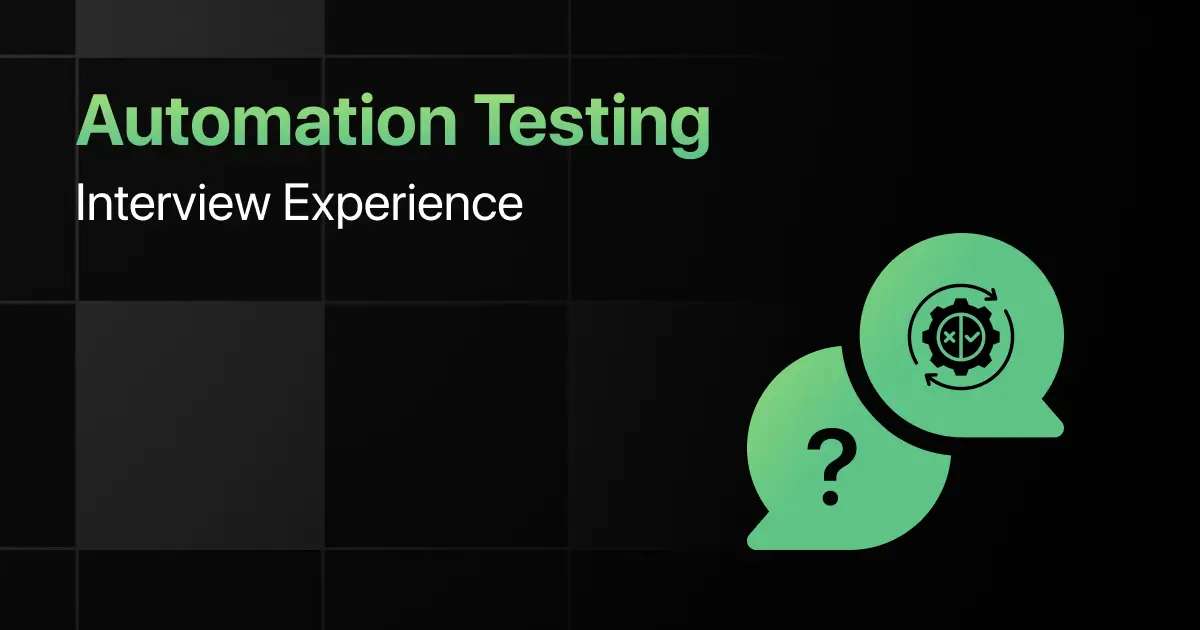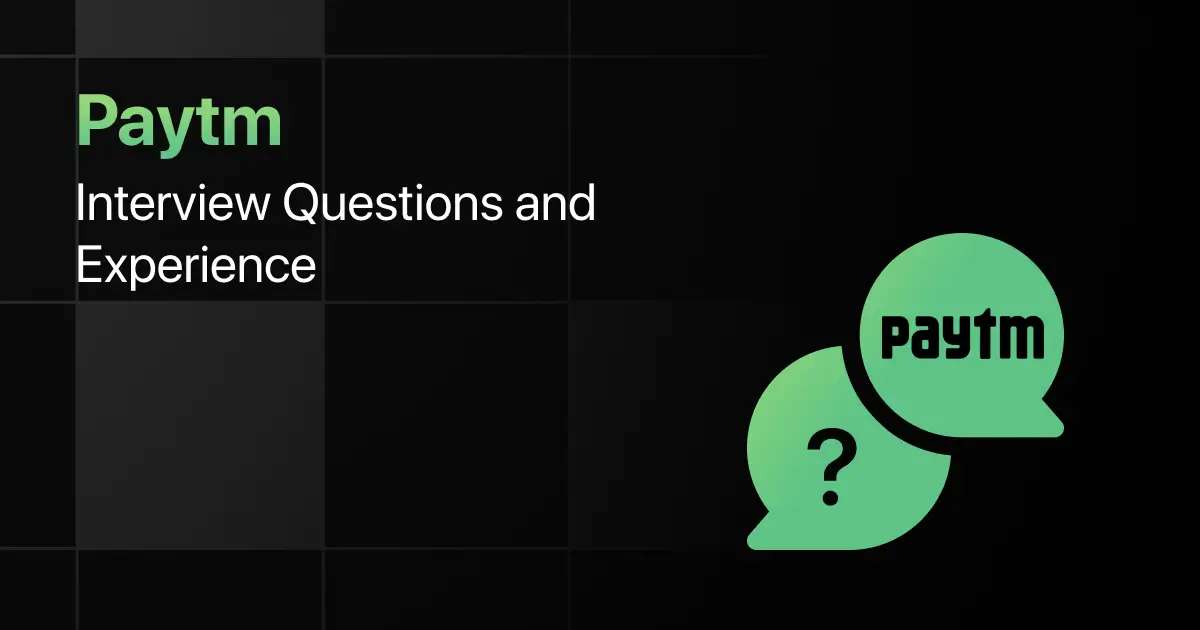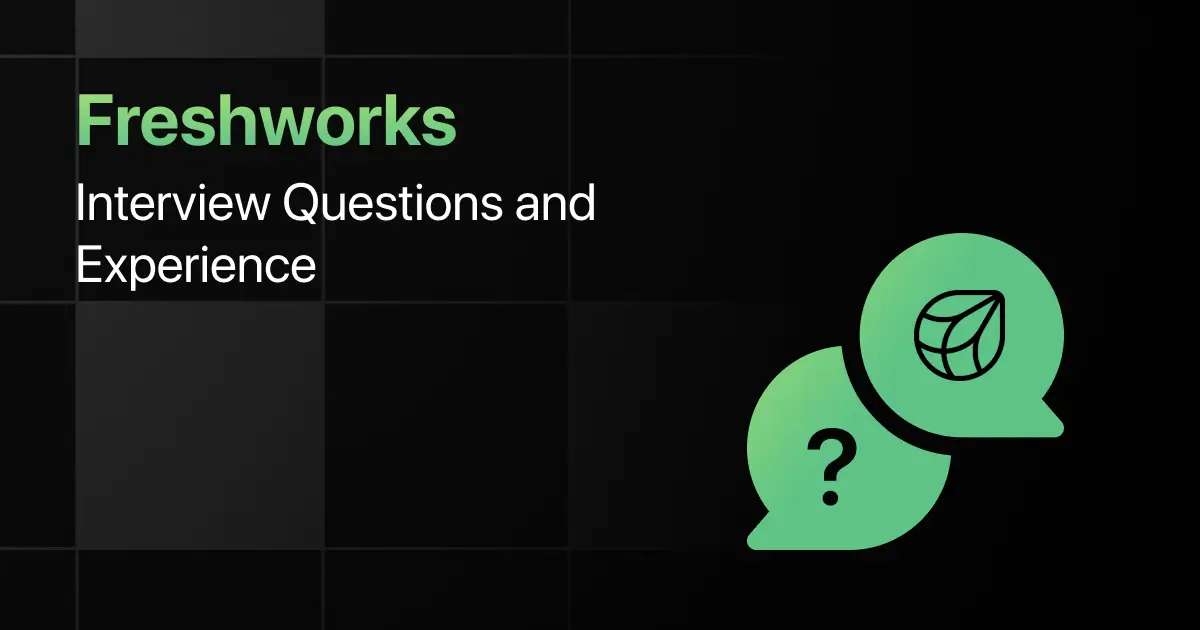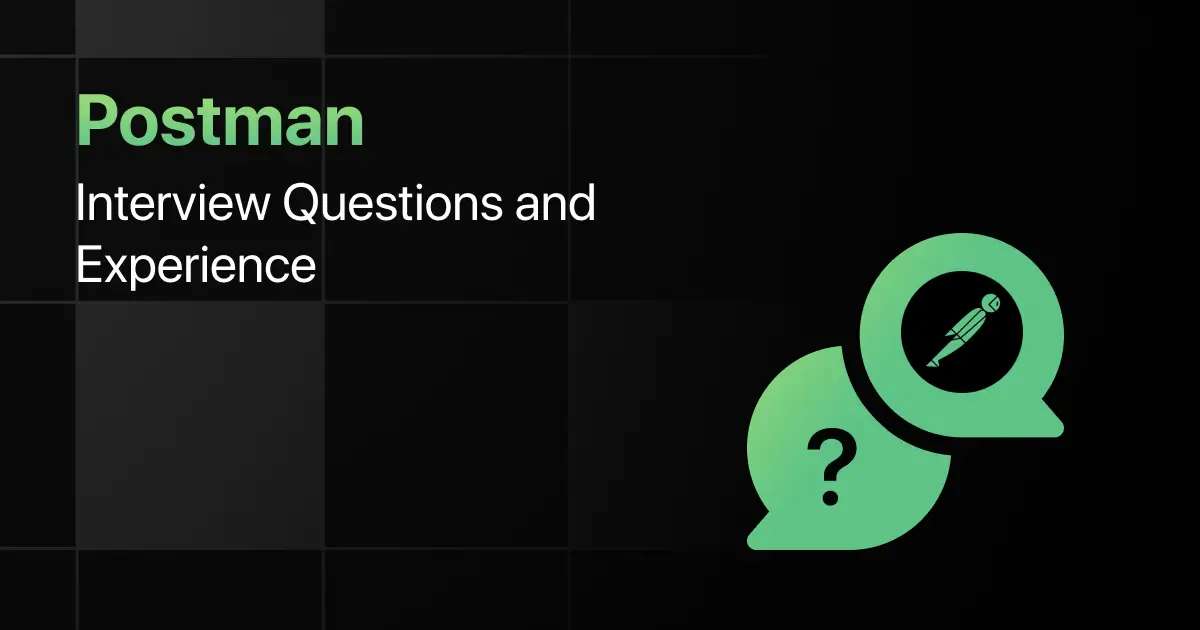Automation Testing Interview Experience

Have you ever wondered what it is like to sit for an automation testing interview? You may know the tools, but the process often feels different.
As a candidate, you usually face rounds that test coding, frameworks, and problem solving with real test cases. It can be difficult when you are not sure what to expect.
In this blog, you will read real interview experiences from automation testing candidates. You will also find common questions and preparation tips to help you plan better.
Real Candidate Interview Experiences
1. QA Automation Engineer Interview at Cognizant
This interview experience is from Nikhil N V, who interviewed for a Senior QA Automation Engineer / SDET role at Cognizant. The process had three rounds covering coding, automation concepts, and HR discussions.
Candidate Background:
- Experienced candidate with about 5 years of total experience, including 2 years in test automation.
- Skilled in Java, Selenium, TestNG, frameworks, and automation scripting.
Interview Process They Faced:
- Round 1 (Technical, 1–1.5 hrs): Focused on Java coding, OOP concepts, and automation testing with Selenium and TestNG.
- Round 2 (Written Test, 1 hr): Focused on Java programs and coding exercises.
- Round 3 (HR, 15–20 mins): General introduction, salary expectations, educational or professional gaps, and availability.
Questions Asked:
- Coding / Java: Create user-defined ArrayList, customized ArrayDeque, LinkedHashMap, Exception handling, reverse string without library, prime number pyramid, remove duplicates in string or array.
- Automation Concepts: TestNG annotations (beforeTest vs beforeMethod), handling frames in Selenium, getWindowHandle vs getWindowHandles, extracting browser data with Properties file, DataProvider usage.
- Conceptual: Dynamic polymorphism, multithreading, desiredCapabilities, HashMap concepts, HashSet vs LinkedHashSet, StringBuilder vs StringBuffer.
- Case Study / Scenarios: Write code to get all links from a webpage, discuss handling frameworks and scripts in projects.
- HR: Introduce yourself, salary, gaps, joining timeline.
Outcome & Difficulty Level:
- The candidate was selected.
- The difficulty level was moderate to high, with a strong focus on Java coding and automation frameworks.
2. Quality Assurance Engineer Interview at Amazon
This interview experience is from Siri Arelli, who interviewed for a Quality Assurance Engineer role at Amazon through an off-campus drive. The process included an online assessment and two technical interviews.
Candidate Background
- Fresher candidate applying for a QAE role. Skilled in testing methodologies, test case design, programming basics, and system concepts like networks and operating systems.
Interview Process They Faced
- Online Assessment: 14 sections with MCQs covering coding, algorithms, data structures, Python, software testing, OOP, networks, OS, SQL, and data modeling.
- Technical Interview 1: Testing methodologies, regression vs sanity, test cases for Amazon features, test data for payment gateways.
- Technical Interview 2: Resume-based project discussion, coding problems, importance of QAE, role motivation.
Questions Asked
- Testing Concepts: Types of testing, regression vs sanity, QAE importance.
- Coding: Hard Leetcode problem in OA, minimum number of currency notes for given sum, longest consecutive subsequence in an array.
- Case Study: Test cases for Amazon lightning deals and payment gateway page.
- Behavioral: Project-based questions, interest in QAE, usefulness of past work.
Outcome & Difficulty Level
- The candidate cleared the process successfully.
- The difficulty was moderate, with strong focus on testing methodologies, coding, and project explanations.
Common Automation Testing Interview Questions
Automation testing interviews usually test coding skills, knowledge of frameworks, and understanding of software testing concepts. Below are common questions grouped into categories.
Java / Programming
- Create a custom ArrayList or ArrayDeque in Java.
- Remove duplicates from a string or array.
- Reverse a string without built-in functions.
- Explain dynamic polymorphism with an example.
- Explain serialization and deserialization in Java.
Automation Tools / Frameworks
- Difference between @BeforeTest and @BeforeMethod in TestNG.
- How do you handle frames using Selenium WebDriver?
- Explain desiredCapabilities in Selenium.
- How do you implement DataProvider in TestNG?
Testing Concepts
- Difference between regression testing and sanity testing.
- What are the types of testing used in projects?
- What is the importance of QAE in software development?
System Design / Case Study
- Write test cases for Amazon’s lightning deal feature.
- Write test data for payment gateway fields in an e-commerce site.
- How do you extract browser data using a properties file?
HR / Behavioural
- How do you explain your past project contributions?
- Why are you interested in an automation testing role?
Preparation Tips for Automation Testing Interviews
A mix of coding practice and test automation knowledge helps you succeed in automation testing interviews.
- Strengthen Java: Revise collections, strings, and OOP. Coding questions in automation interviews often focus on these fundamentals.
- Practice Automation Tools: Work hands-on with Selenium, TestNG, and frameworks. Be ready to explain code and the differences between annotations.
- Understand Testing Concepts: Be clear on regression, sanity, and other types of testing. Interviewers check both theory and application.
- Focus on Test Cases: Practice writing test cases for real-world features like login, payments, or shopping carts. This tests the practical application of QA knowledge.
- Review Projects: Be prepared to explain your project role, framework used, and how you solved challenges.
- Work on Problem Solving: Solve Java problems involving arrays, strings, and hash maps. Coding ability is essential for SDET roles.
- Prepare Behavioral Answers: Use concise examples to show teamwork, problem-solving, and ownership in QA projects.
Final Words
Automation testing interviews test coding, frameworks, and QA concepts. Learning from real experiences and practicing both coding and testing scenarios helps you prepare effectively.
Explore More Interview Experience for
FAQs
Automation testing interview experiences help by showing real questions, coding tasks, and testing scenarios, making preparation more practical.
Automation testing interviews frequently cover Java coding, Selenium, TestNG, testing concepts, and framework design.
The automation testing hiring process usually takes two to four weeks depending on the company.
Senior QA automation engineer and SDET roles usually have the toughest interview rounds.
Freshers prepare by learning Java basics, practicing Selenium, writing test cases, and revising testing methodologies.
Automation testing interviews focus on both coding and concepts, testing practical skills and theoretical knowledge.
No, each company follows a different process, but most include coding, testing concepts, and behavioral rounds.
Related Posts


Paytm Interview Questions and Experience
Preparing for a Paytm interview requires a clear understanding of the company’s hiring process, the type of questions asked, and …
Warning: Undefined variable $post_id in /var/www/wordpress/wp-content/themes/placementpreparation/template-parts/popup-zenlite.php on line 1050








